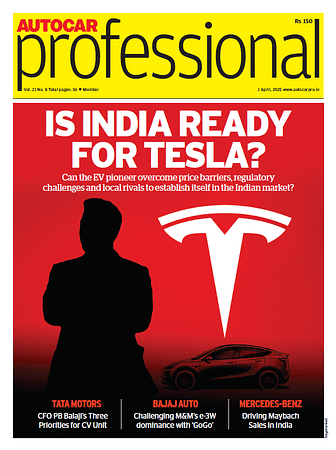Tata Motors' units raise Rs 837 crore in FY24 for e-bus operations
The funding, with a tenure of 8-10 years, is tied to Gross Cost Contract (GCC) projects secured by the subsidiaries - TML Smart City Mobility Solutions Limited, TML CV Mobility Solutions Limited, and TML Smart City Mobility Solutions J&K Private Limited.
Three subsidiaries of Tata Motors Ltd secured a combined Rs 837 crore in long-term financing for electric bus operations, according to the company's annual report.
The funding, with a tenure of 8-10 years, is tied to Gross Cost Contract (GCC) projects secured by the subsidiaries - TML Smart City Mobility Solutions Limited, TML CV Mobility Solutions Limited, and TML Smart City Mobility Solutions J&K Private Limited. The banks also sanctioned fund-based working capital limits of Rs 50 crore.
GCC refers to contracts in which OEMs are paid a fixed amount per kilometer of distance traveled by the buses, with the government agency in charge of collecting the bus fare. Under the other type of arrangement, called NCC or net cost contract, the OEM is also responsible for collecting the bus fare. Both are asset-heavy models of engagement for OEMs.
Recently, Tata Motors' Group CFO PB Balaji had favored an asset-light model for OEMs. Balaji, speaking during a post-results call, emphasized that Original Equipment Manufacturers (OEMs) should focus on efficient operations rather than owning the vehicles under government tenders.
His remarks come in response to a recent tender by Uttar Pradesh State Transport Corporation for 5,000 electric buses on a net cost contract (NCC) basis. The corporation aims to deploy 50,000 e-buses over the next 4-5 years. Under the NCC model, the financial risk falls on private operators responsible for fare collection and operational costs.
Balaji underscored the importance of an asset-light approach for OEMs in such large projects. With each e-bus estimated to cost around Rs 1 crore, the total investment for 50,000 buses would reach Rs 50,000 crore. "We don't have the balance sheet of that size," he said. "No OEM will have a balance sheet of that size."
Owning the buses would strain OEMs' financials and potentially impact stock prices, according to Balaji. "The entire returns metrics goes out of the window and that would see pressure on the stock prices. So we have to be careful about that," he added.
Balaji's comments highlight the ongoing debate around risk allocation in India's electric bus rollout. The government aims to accelerate electric bus adoption, but OEMs are wary of large upfront investments and operational risks associated with owning the vehicles.
RELATED ARTICLES
ZF Group Secures Major Electric Axle Deal in India with Leading CV OEM
According to ZF Group India President Akash Passey, the contract reflects the company’s consistent engagement with India...
ArcelorMittal Nippon Steel India Gears Up for Green Steel Taxonomy Implementation
AM/NS India prepares to align with the Ministry of Steel’s Green Steel Taxonomy through emissions reduction measures, te...
Ultraviolette Announces Partnership with MotoMondo for Entry into the UK and Benelux Markets
Ultraviolette appoints MotoMondo as its official distributor for the United Kingdom and Benelux region, marking the comp...






 By Autocar Professional Bureau
By Autocar Professional Bureau
 03 Jun 2024
03 Jun 2024
 11140 Views
11140 Views





 Arunima Pal
Arunima Pal


 Sarthak Mahajan
Sarthak Mahajan


